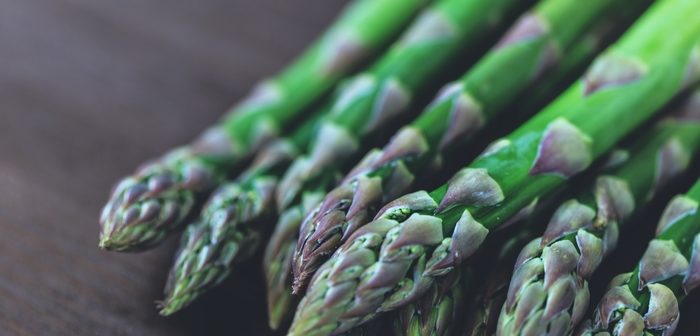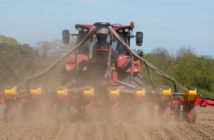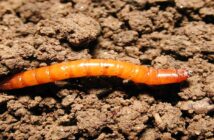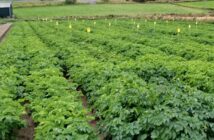In the last few years, vegetable, allium, herb and nursery specialist crop growers have lost a number of crop protection actives, either as products are revoked or as they go through re-registration and lose crops and uses. But the classic post-emergence herbicide Dow Shield (clopyralid) has been adding crops to its label as well as adding Extension of Authorisation for Minor Uses (EAMU’s). Clopyralid has been on the market for over 40 years and continues to be an important herbicide for the specialist grower.
Being registered for over 4 decades, Dow Shield has exceeded all the necessary registration hurdles for today’s market, including five years ago the launch of a new and improved double strength formulation, Dow Shield 400. Throughout this time Dow Shield 400 has become an important active ingredient for the control of difficult perennial and annual weeds such as creeping thistles, volunteer potatoes, spear thistle, corn marigold, groundsel, mayweeds and smooth sow-thistle. The more concentrated formulation comes in Corteva’s recognised advanced packaging with self-seal cap technology with no foil to dispose of, making it easy to handle, optimizing tank filling operations and minimising the risk of point source contamination.
Dow Shield 400 has 20 different crops on its label, including swedes, turnips, mangels, bulb onions, broccoli/calabrese, cabbage, cauliflower, fodder beet, forage maize, linseed, grassland, ornamental plant production and Brussels sprouts as well as most cereals and oilseed rape. It has over 50 EAMUs including asparagus, garlic, shallots, chard, spinach, spinach beet, Chinese cabbage, choi sum, pak choi, kale, collard, outdoor leafy herbs, borage, Miscanthus, evening primrose, poppy grown for morphine, hops, outdoor leeks and salad onions plus some fruit crops too.
Allium growers have only a few chemicals to use, but Dow Shield 400 has recommendations for most allium crops including bulb onions, salad onions, outdoor leeks, garlic and shallots. Dow Shield 400 should be used from 1st March and when these crops have at least 2 true leaves but before 6 weeks prior to harvest. Make sure the crop has adequate wax layers.
Cabbage, cauliflowers and broccoli can also be treated from the 2 true leaf stage or when well established if transplanted up to 6 weeks before harvest and Brussels sprouts between the 2 true leaf stage up to 9 true leaves. Its dose rate is 0.25L/ha for annual weeds, 0.5 L/ha for perennials in a single application or up to 0.75L/ha total maximum dose from two applications in a programmed approach.
Peas or beans should not be planted in the same year as the treatment with Dow Shield 400. For any EAMU, growers should obtain a copy of the notice of approval via the Chemicals Regulation Division (CRD) web site, ADAS offices or NFU.




